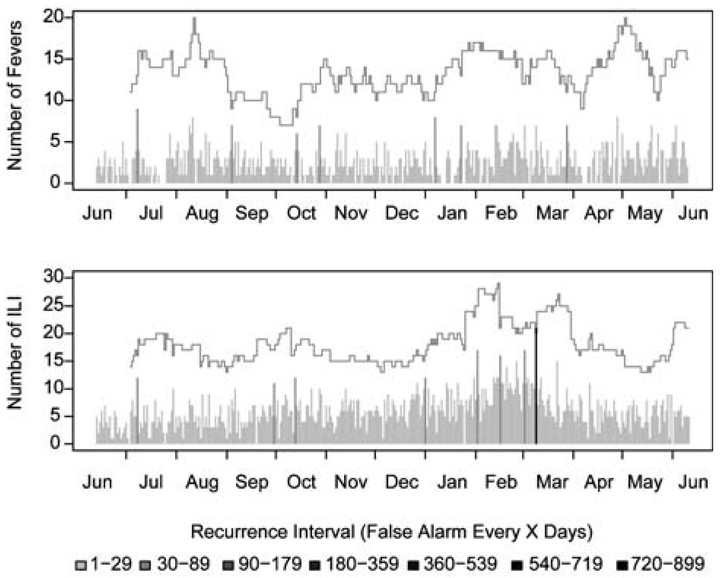Syndromic surveillance: early results from the MARISSA project

Abstract
CONTEXT: The Madison Area Review of Systems Syndromic Surveillance Application (MARISSA) project is the ongoing development of a syndromic surveillance system at the University of Wisconsin Hospital and Clinics Emergency Department. Readily available electronic health data will be used to provide timely identification of increased respiratory illness activity in the Madison area. OBJECTIVE: To develop novel data sets and statistical methods for syndromic surveillance. DESIGN: Time series of daily counts of influenza-like illness (ILI) and fever in the University of Wisconsin Hospital and Clinics Emergency Department from June 13, 2007 to June 11, 2008. MAIN OUTCOME MEASURES: Operating characteristics of limited baseline aberration detection methods with varying lengths of baseline periods were evaluated by simulation. RESULTS: All methods had false detection rates at or below the nominal levels. True detection rates were substantially higher for methods based on longer baseline periods. CONCLUSION: The MARISSA project has adopted a limited baseline aberration detection method with a baseline period of 21 days and a nominal false alarm rate of once every 365 days for ongoing syndromic surveillance. Future work will explore the utility of novel data sources such as review of systems and vital signs for syndromic surveillance.